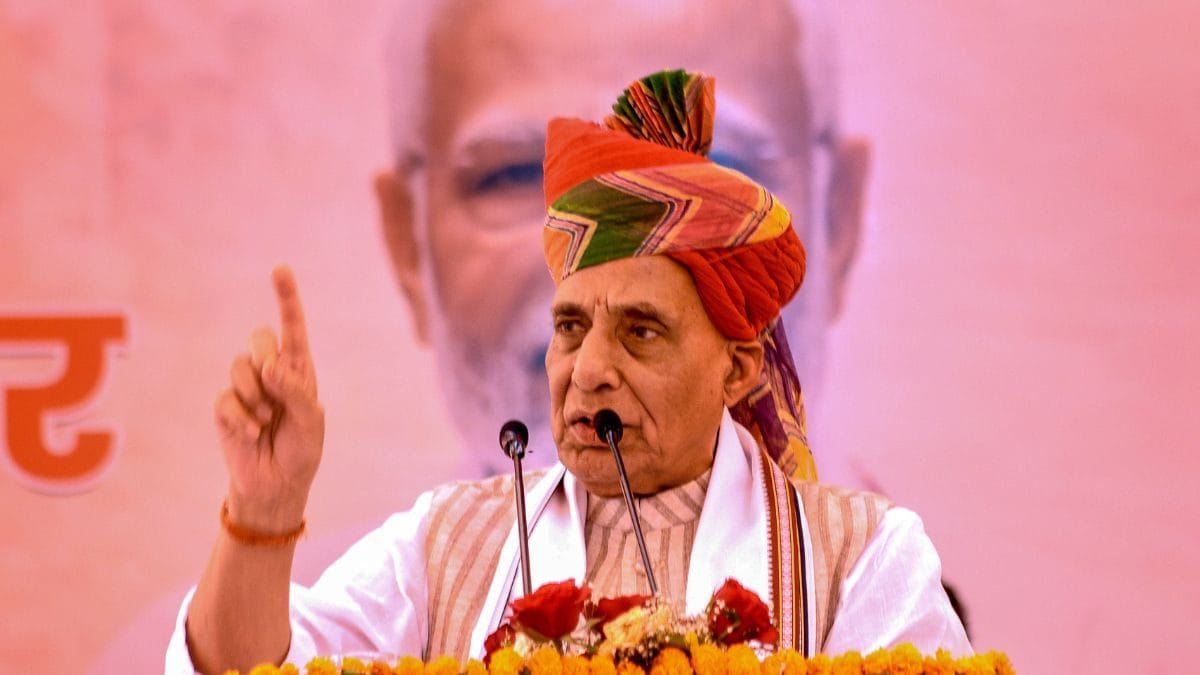India’s Defence Minister Rajnath Singh has reiterated that India is open to engaging in dialogue with Pakistan, but only if Islamabad ceases its support of terrorism in Jammu and Kashmir. This stance, expressed during an election rally in Jammu and Kashmir, underscores the deep-rooted tension between the two nuclear-armed neighbours and the critical issue of cross-border terrorism.
India’s Position: Dialogue Contingent on Terrorism Cessation
Singh’s statement is not a novel position for India. The government has consistently maintained that any meaningful dialogue with Pakistan can only occur after a tangible shift in its policy on terrorism. The emphasis on ending terror activities is not just a political statement, it’s rooted in the grim reality of violence that has plagued the region for decades. The high number of civilian casualties, primarily among Kashmiri Muslims, further underscores the detrimental impact of terrorism on the region. This assertion is intended to highlight the tangible harm caused by Pakistan’s support for terrorism, targeting both the Indian state and its own citizens.
A Complex History of Conflict
The history between India and Pakistan is one marked by mistrust and conflict, deeply intertwined with the legacy of the partition of British India in 1947. The disputed territory of Kashmir, a predominantly Muslim region, has been a point of contention ever since, with both countries laying claim to it. The 1947 war over Kashmir, the 1965 war, and the 1971 war are testament to the enduring tension over the territory. In 1999, the two nations almost went to war again during the Kargil conflict, where Pakistan-backed militants occupied strategic heights in the Kargil district. The simmering tensions over Kashmir have been further aggravated by the frequent incidents of cross-border terrorism.
The 2019 Abrogation of Article 370
A major turning point in the Indo-Pakistan relationship came with India’s decision to abrogate Article 370 of its Constitution in August 2019. This move, which revoked the special status of Jammu and Kashmir, was met with strong opposition from Pakistan. While India argued that the move was crucial to improve governance and integration of the region, Pakistan accused India of violating international law and pushing the region towards a human rights crisis. The abrogation of Article 370 has intensified the political and diplomatic tensions between the two countries.
The ‘Foreigner’ Status of PoK Residents
During his speech, Singh addressed the people of Pakistan-administered Kashmir (PoK), calling them “our own” and emphasizing the stark contrast in their treatment by the two states. He highlighted the Pakistani government’s public admission, through its legal representative, that PoK is a “foreign land” – a statement that fuels India’s claims about its right to the entire territory. By reiterating this, Singh aims to showcase the “misery” inflicted by the Pakistani government on PoK residents, thereby painting India as a beacon of hope and inclusion.
The Future of Dialogue: Uncertain Prospects
The likelihood of any substantive dialogue occurring in the near future appears uncertain. While Singh’s statement indicates a possibility of talks, his accompanying call for Pakistan to halt all terror activity acts as a major hurdle. This precondition, as currently phrased, leaves little room for compromise. For Pakistan, it is a demanding ask that it likely considers a red line, making it extremely unlikely to comply. The statement, in effect, reflects the deadlock in the bilateral relationship and underscores the complex challenges involved in achieving peace and lasting stability in the region.
Take Away Points
- India has expressed its willingness to engage in dialogue with Pakistan, but only on the condition that Pakistan completely ceases its support for terrorism in Jammu and Kashmir.
- This condition remains a significant point of contention, and its stringent nature indicates the challenges in bridging the gulf between the two countries.
- Singh’s emphasis on the “foreigner” status of PoK residents reflects the continuing dispute over Kashmir’s territorial boundaries and underscores India’s aspiration to claim the entire region.
- Despite the statement’s cautious optimism, the immediate prospects of a successful dialogue remain unclear. The ongoing conflict and the current state of bilateral relations suggest a prolonged period of stalemate.
- The ongoing tensions and uncertainty surrounding future dialogue highlight the importance of finding a long-term solution to the Kashmir conflict, one that respects the rights of all parties involved and ensures peace and stability in the region.




